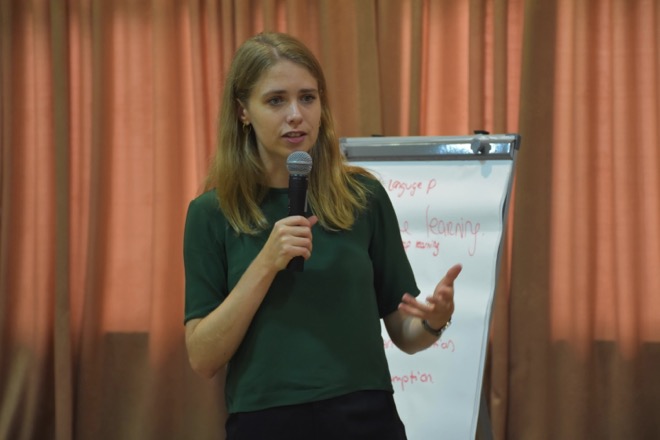The advent of Artificial Intelligence (AI) is ushering in rapid transformation across various economic sectors, promising to revolutionise industries such as agriculture, transportation, education, and healthcare. Against this backdrop, the concept of "AI readiness" has taken centre stage, with many recognizing AI’s potential to elevate public services, and work towards increasing efficiencies across multiple sectors.
Recognizing the significance of AI, the Government of Sri Lanka has appointed a committee to drive the development of Sri Lanka's AI strategy, anchored under the Presidential Secretariat. The United Nations Development Programme (UNDP) Sri Lanka, as a member of the aforementioned committee, launched the AI Readiness Assessment (AIRA), a key milestone in the process of shaping Sri Lanka's AI strategy.
The AIRA is a tool developed by UNDP that aims to assess the current AI landscape in Sri Lanka and provide input to the overall AI strategy that will be developed next year. AIRA is composed of a comprehensive survey that gauges the insights of the public sector, plus a series of Key Informant Interviews that capture the perspectives of those within the non-governmental sectors, including academic, development partners, and private sector amongst others.
To launch the assessment and to carry out the Key Informant Interviews a mission from UNDP’s Chief Digital Office (CDO) was carried out during the 3rd week of October 2023. During this mission, experts from UNDP’s CDO conducted interviews with key stakeholders to understand the AI and digital transformation landscape of Sri Lanka. A workshop participated by more than 80 public sector officials representing numerous ministries and departments was also organized and facilitated by UNDP to launch the survey component of the AIRA.
Kanaka Herath, State Minister of Technology highlighted that, “We have already established the AI committee to formulate the National AI Strategy. AIRA will help us assess where we are as a country today to secure the benefits of AI and support the formulation of the foundation for strategy. Towards the end of this assessment, we should have data points on the AI Policy and Strategy based on key priorities such as focus areas, and foundational building blocks including data, infrastructure, and skills”.
Speaking at the workshop, Malin Herwig, Deputy Resident Representative, UNDP Sri Lanka noted that “AI can help us improve public services, boost economic growth, and create new jobs. But in order to reap the benefits of AI, we need to be prepared.
This will help us identify the areas where we need to invest and develop a plan to utilize AI to its maximum potential, while most importantly bearing in mind the ethical use of AI.”
As we look ahead, it is evident that AI will continue to grow as a driving force in the global economy, shaping the future of industries and economies across the world. AI readiness is a pivotal determinant in a government's capacity to thrive in the AI-driven era, contributing not only to economic prosperity but also to the well-being of its citizens in an increasingly interconnected and technologically advanced world.

